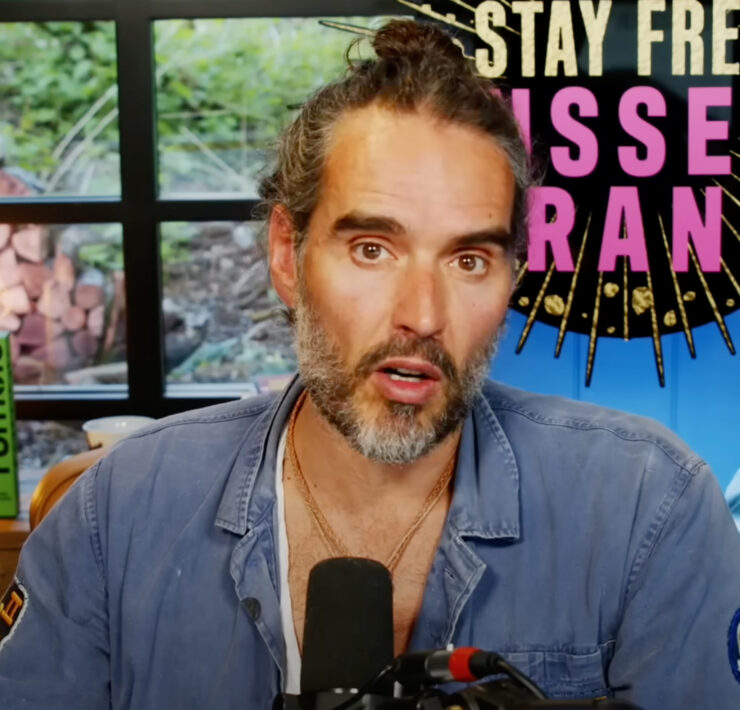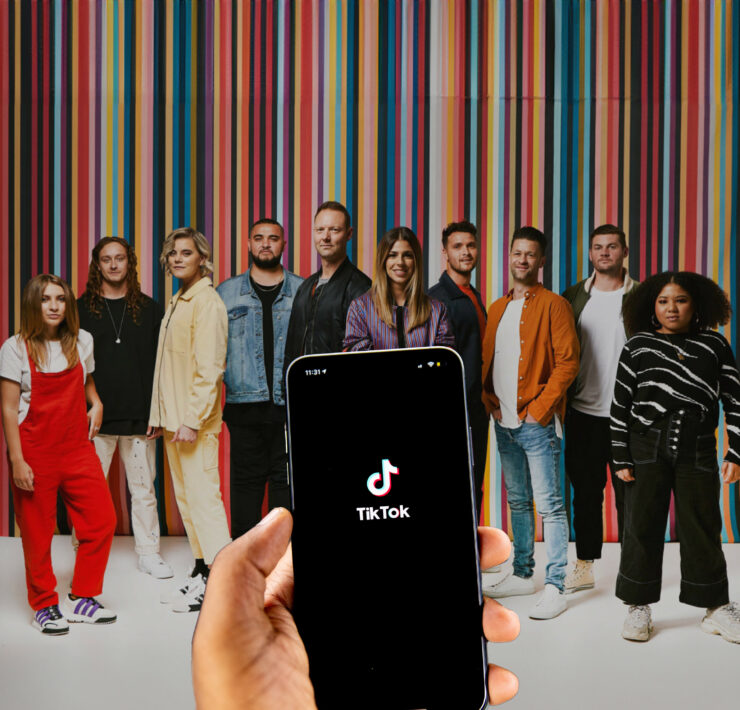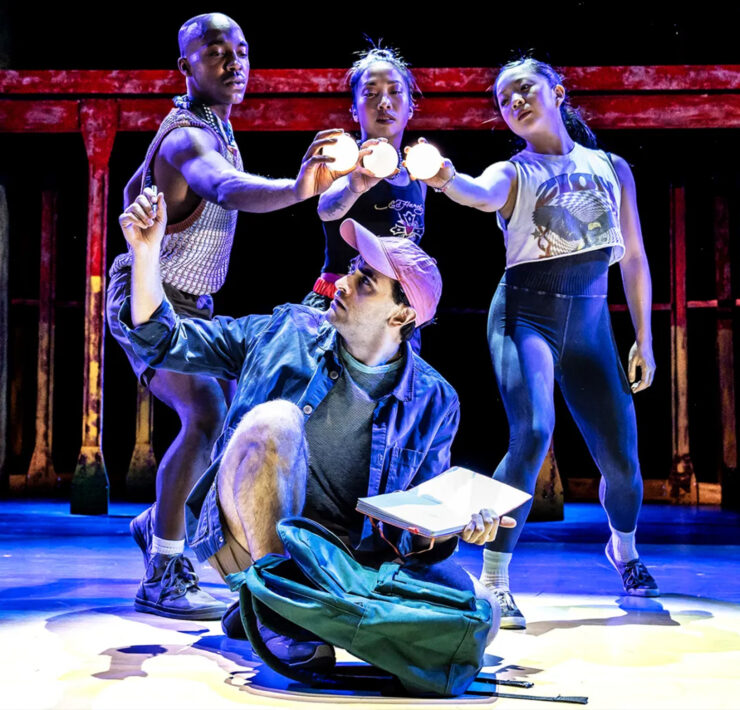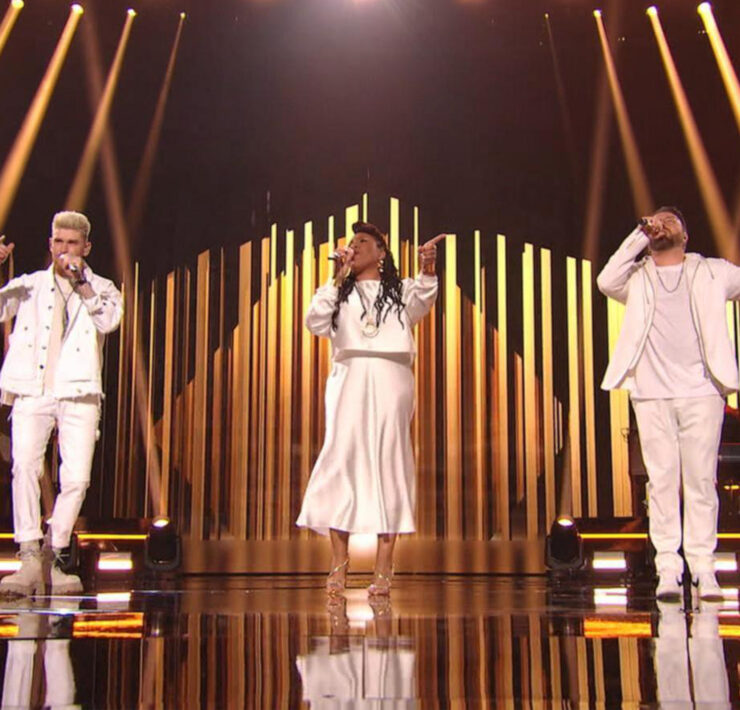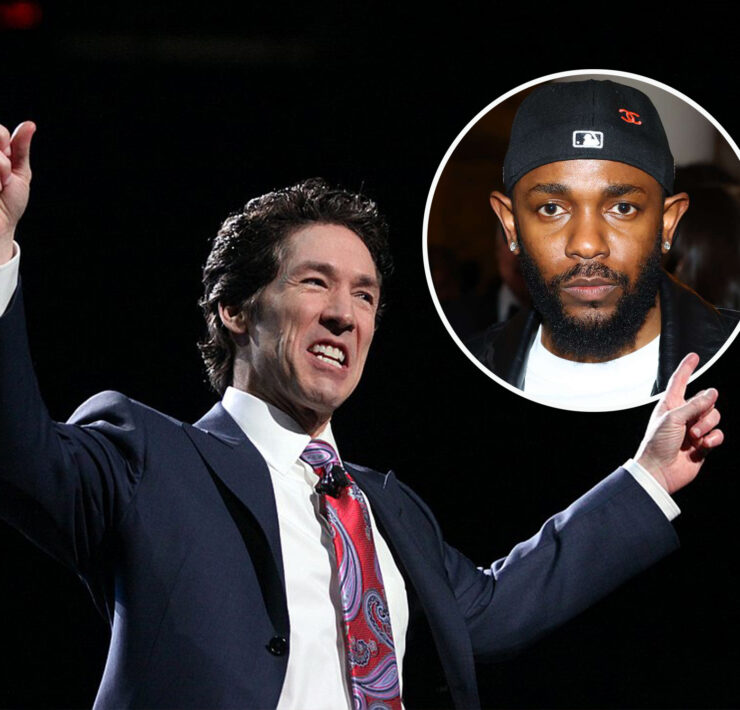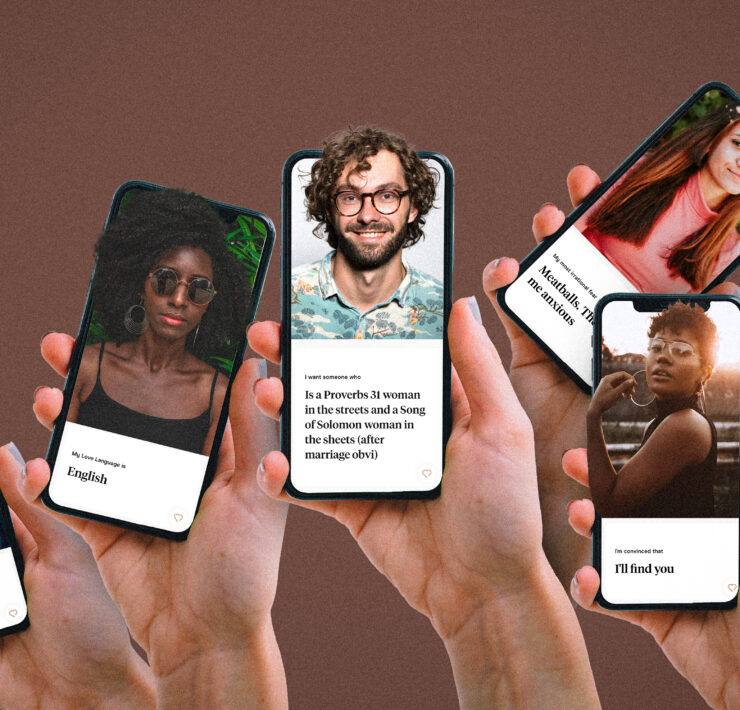
In 2014, David Oyelowo shocked the nation with his revelatory Selma performance, bringing the life, words and legacy of Dr. Martin Luther King Jr. to the screen with unbridled power and poignancy. Since then, the UK-born actor has become an American citizen and has continued to turn in a series of startling roles. You’ll see him next in George Clooney’s The Midnight Sky, based on Lily Brooks-Dalton’s sci-fi novel. He’s also starring opposite Angelina Jolie in Brenda Chapman’s Come Away, which premiered at Sundance in January.
In the meantime, he’s been using his platform to support the Black Lives Matter movement – particularly in regards to the American Church’s silence and apathy on the subject of racism. Oyelowo’s open about how deeply saddened he’s been by the Church’s resistance to repenting of racism. He sat down with RELEVANT to talk about his own perceptions of why the Church has stayed on the sidelines, where Christians tend to go wrong in supporting Black Lives Matter and what true repentance would look like
Since moving here to the US, have you been surprised at the levels of racism you’ve seen?
No, I wouldn’t say I’ve been surprised. I would definitely say I’ve been disappointed. My lack of surprise is tied to the fact that, unlike the UK where I grew up, racism in America is far more overt. To be perfectly frank, I’d rather see my enemy coming at me than them pretending to be my friend, which is a lot more prevalent in the UK. While there is no question that America has made huge strides when it comes to racial equality over the last 50 to 60 years in the wake of the Civil Rights Movement — not least the seismic moment of having a Black President for eight years — the disappointment is tied to realizing and recognizing that that very fact has sort of energized and stirred up a still very insidious, evil, vile element within American life that has almost made it feel like the gains made over the last few decades are irrelevant in relation to how far behind we still are when it comes to racial equality.
Why do you think that is? Do you think it made Americans feel a little complacent about racism?
I would say it’s even more troubling than that. These phrases that have crept into our vocabulary more — “white supremacy” and “white privilege” — people who don’t even realize how much they are beneficiaries of those things. Sometimes your silence is as active as being vocally racist because deep down, whether consciously or subconsciously, you recognize that you are a beneficiary of a system of oppression. That means that if you’re a white person, you are afforded privileges that Black and brown people are not. The very silence, as it were, is a sanctioning of that tendency within American life.
In the few years since Selma has been released, it’s been interesting to see Dr. King’s words and legacy used and, sometimes, misused or even weaponized against people who do try to speak up about these things.
For sure. I mean, one of the things that indisputably Dr. King subscribed to was nonviolent protest. The hope is that nonviolent protest means that the people, politics or injustices you are protesting against be conveyed in a way that can be heard because there isn’t the distraction of retribution, revenge or violence. If there is a concerted effort not to listen to the protestors, not to change, Dr. King also said in his Letter from a Birmingham Jail: “We cannot be consistently asked to wait for justice.” It’s been centuries of waiting and peaceful protest and appealing.
To me, when people focus more on the looting that happens during protest instead of the systemic oppression of Black people and murder of Black people by law enforcement, it is such a kick in the teeth. It’s basically focusing on the byproduct of a cry for help, instead of the cry for help itself, which to me is very inhumane.
Do you have any ideas about a better way to think about how the Civil Rights Movement relates to where we’re at right now as a country?
You have to go even further back than 1965, which is the era that Selma demonstrates. If you go back to 1619, when the first enslaved Black people were brought to Jamestown. Then you fast forward maybe another 100 or so years to when Thomas Jefferson was helping forge the foundation of what this nation has gone on to become, penning words like “All men are created equal.” But then during the course of his life, Jefferson owned 607 Black people as slaves himself. You begin to realize that this country was built on a foundational paradox — a foundational sin.
America was built on the backs of Black people who were stolen from their continent and brought here. It was built on the backs of Native Americans who were already here and who were murdered and moved aside. It was built on the backs of Mexicans who had their own land annexed and stolen from them. That is America. As much as America is a transcendent place that started by also being a refuge for those who had been oppressed by the British, it was also an example of how abused people abuse people. The very thing that Americans were running away from, they did to other groups of people.
For me, as a Christian, the thing I am most disappointed about, the thing I’m most disgusted with is the Church’s lack of energy behind this movement at the moment from a place of repentance. The Bible is incredibly clear about repentance coming with a promise. I go to Second Chronicles 7: 14, “If my people who are called by my name will humble themselves and pray and seek my face, and turn from their wicked ways. Then I will hear from heaven and will forgive their sin and heal their land.”
It feels to me like we are in a moment where we can agree that there is something wrong in America when it comes to race. If that is right, then what is that wrong thing? That wrong thing is the oppression of people groups. Until we repent for that, I do not see how we can expect God to heal our land. I’m not hearing that enough within the Church at this time, partly because I think the Church has been co-opted by politics. Speaking out for Black Lives somehow has become tied to which political party supposedly you support.
A lot of Christian leaders have pretty openly hedged their support of the movement for fear of being branded with certain partisan labels.
You just have to look at Jesus. Jesus did not subscribe to any political party. He was a law-abiding citizen but he never subscribed to Rome, he never subscribed to the Pharisees. He said, “I only do what my father tells me to do.” Dr. King was the same. He knew that the potency of his voice as connected to God would be eroded if he subscribed to any political party.
I just don’t know how the Church in America has fallen into the trap of being tied to a political party. I’m not saying for a moment that there are political parties that espouse Christian values more than others, but Jesus came for all men and women. He came for those who were broken. Those who were the sinners. He spent more time with people who were on the fringes of society than the rich or the political. If we, as the Church, are to remain relevant to all people, we cannot be seen to be tied to one political party.
If there’s anything I feel very strongly about when it comes to American politics, it’s that it’s built on compromise. But our faith is uncompromising. “I am the way, the truth, and the life.” Politics is the opposite of that. How have we been pulled into something that is antithetical to who God is and what God espouses?
You mentioned that the key is repentance. It’s not something we’re very good at, even with issues a lot less systemic than racism. Do you have any ideas about what repentance would look like?
Yes, I absolutely do. The reason why it feels so big and unwieldy is that it’s now 401 years old as an intrinsic, foundational part of American life. It is woven into the fabric of what this country is. It’s not going to take a tweet, an Instagram post or even a march or a movie to unpick this.
The thing we do know is the power of prayer. We know that we do not battle against flesh and blood, but principalities and powers in the high places. There is nothing for us as the Church, as Christians, that is going to be more effective than to go to the foot of the cross and pray for God’s mercy to expunge some of this foundational sin that has been woven into this country. Christianity is built on what Jesus did on the cross. The only way you have salvation is to admit that you are wrong, Christ is right and his blood invites you to share in that righteousness. America, in my opinion, is on the wrong side of righteousness and rightness, especially when it comes to race.
Now, I live here. I’ve lived here for 13 years. I’m raising children who are American. I’m an American citizen myself. Don’t get me wrong. I love America. I do think it’s one of the greatest nations, not only in the world, but that has ever been in the world. But there is something wrong in and with America, and the Church is tied into that. For me, nothing would be more incredible than the Church coming together and having a day of repentance — making Juneteenth a day where we as Christians go, “Dear God, forgive us for the foundational sin on which this country was built. Help us to be better going forward than we have been in the past.”
But there is so much pride and ego born out of white supremacy. Even though I think there are individuals who would love to see that, politics and pride become a factor that stops us from taking that step into repentance communally.
Does this movement help you feel a little more optimistic? Or do you think we’re in danger of letting this opportunity come and go?
I’m not optimistic, if I’m honest. I have been shocked by how quiet the Church has been in the midst of literally the largest protests this country has ever seen as it pertains to race. I’ve talked to people — perfectly sane people I respect within the Church — who will focus more on talking about looting than murder. People who will say to me in reaction to Black Lives Matter: “Well, all lives matter.” For goodness’ sake.
Thomas Jefferson was saying “all lives matter” when he says all men are created equal, but do you think any of his slaves would agree that he meant it? I can tell you for a fact that in America, all lives do not matter. That is an aspiration. Black Lives Matter is a plea. To combat Black Lives Matter with “all lives matter” or even worse, “blue lives matter” just lacks compassion on such a deep level. I’ve seen that attitude within the Church.
How do you grapple with this sense of frustration and discouragement regarding the racism and the Church’s silence around racism, personally? How do you keep from being overwhelmed?
The events of the last few weeks have been incredibly challenging. Where I have gained encouragement is seeing more Christ-like behavior in the streets from protestors who may not even profess to be Christians. We are in the middle of a pandemic and people are literally putting their lives and their health on the line to protest the murder of people who may not even look like them. There are more white people in the streets linking arms with Black and brown America. I have seen them prostrate on the ground and from a place of appeal. I have seen them self-sacrificial, with their own lives for the sake of other people. I have seen them cry out for the sake of other people. These are all things that are Christ-like. That is happening in the streets of America, beyond the Church.
Jesus also led a movement that was not religious. It was not traditional. It had optics that looked like protest in terms of people gathering illegally and against what authorities would like. I’m seeing more Christ in the streets currently than I’m seeing in the Church. That’s currently where I’m finding my hope. That’s a shame, but also maybe what the Church is going to look like going forward.
That’s going to be tough to hear for a lot of people.
There are people who are going to hear what I’ve said and it may be repugnant or repellent to them, but Black people are dying. It’s not just at the hands of law enforcement. It’s economic challenges. It is educational challenges. There are just so many areas of life where we are being challenged. This is, for me, a cry from the heart. It’s a plea. Black Lives Matter is a plea. It is not indignant, looting-ridden, obstinate, front-footed, weaponized phrase. It is a plea and an appeal. Let black lives matter. Let it be a reality, not just a slogan. That is why I am in a state of, to be perfectly frank, a bit of despondency really. I’m just not seeing enough compassion. I really hope that beyond my fiery words, people can see that it’s a plea. It’s a plea for people to just shift their perspective.










